I recently met a footballer’s descendant who had a mystery: nobody knew what had happened to her grandfather, Johnny Dick.
Dick was famous in his day: the first man to play 250 games for Arsenal and a title-winning coach in Czechoslovakia and Belgium, but then he simply disappeared from view. A quick check of some websites confirmed that there were a lot of gaps in his life. I did some research and here, for the first time, is his full story.
He must have shown some promise as in 1898 he was tempted to move to London where he signed for Woolwich Arsenal as a professional. It was the start of a lifetime’s journey in football. He remained at Arsenal until 1912, the year before the club relocated north of the Thames, and over those 14 years he played 266 league matches. He was with them as the club won promotion to the First Division in 1904, and despite being only five feet seven he was a dominant figure at centre half or right half.
He was club captain for several seasons, then in latter years was mainly with the reserves, where he first took up coaching. He was a natural for the role, and for example when a youthful Charles Buchan (later an England international) had his first trial for Arsenal, he was reassured by 'Johnny Dick, a grand Scotsman who put me at my ease before the start'.
Meanwhile, in 1899 Dick married a Woolwich girl, Annie Keard, whose brother Alexander was later an Arsenal official. His long stay at the club earned him two benefit matches, and the £100 he gained from the second of those gave him the wherewithal to open a tobacconist’s shop in Plumstead in 1909. But a life behind the counter was not to be.
Dick remained with DFC throughout the First World War, even though Prague was then in Austria-Hungary, effectively the 'enemy'. However, in the context of the Czech nationalist movement it was possible, like Madden, to live normally in the city without being interned. Known simply as 'Johnny', he continued to play occasionally, the last recorded time being in 1917 when he was 40.
When Czechoslovakia came into existence in 1919, Dick took up the reins at AC Sparta. He turned them into a team to be feared – earning them the nickname 'Iron Sparta' – and they won an unofficial European Championship in 1921.
As his family of four boys and two girls grew up in Prague they became fluent in Czech, which led to at least two of them working as British intelligence officers in the Second World War because of their linguistic abilities.
At the end of 1922 the local papers announced that Dick was returning home 'for family reasons' but in fact he went to Antwerp where he was appointed coach of Beerschot. His new club dominated Belgian football over the succeeding five years, winning four league championships.
It was a shock to everyone in Prague when they heard that he had succumbed to stomach cancer, aged just 55, and the Prager Tagblatt wrote 'He enjoyed great popularity everywhere because of his humble nature, and his advice was always well received. The news of his sudden demise has caused great regret in sports circles.'
Although he died at his son’s house in Welling, just a couple of miles from his early football exploits in Woolwich, his death was unreported in the English press.
Johnny Dick deserves greater recognition for his exploits, first as a defining influence in leading Arsenal to the top flight for the first time, then bringing a string of major successes to clubs in Czechoslovakia and Belgium. He was a bright light in a generation of British coaches who taught football to the 'continentals' in the early twentieth century.
He was buried at St Michael, East Wickham, but sadly the headstone is no longer there. Perhaps a small memorial on the site would be a suitable legacy.
Born 29 January 1877 in Eaglesham, Renfrewshire.
Died 14 September 1932 in Welling, Kent.
Football career:
Airdrieonians 1897-98
Woolwich Arsenal 1898-1912
Deutscher FC, Prague 1912-19
AC Sparta, Prague 1919-22
Beerschot, Antwerp 1922-28
AC Sparta, Prague 1928-32
With thanks to contributors to the scottishleague.net forum, and also to the blogs at Scottish Comedy FC and the Arsenal History Society.
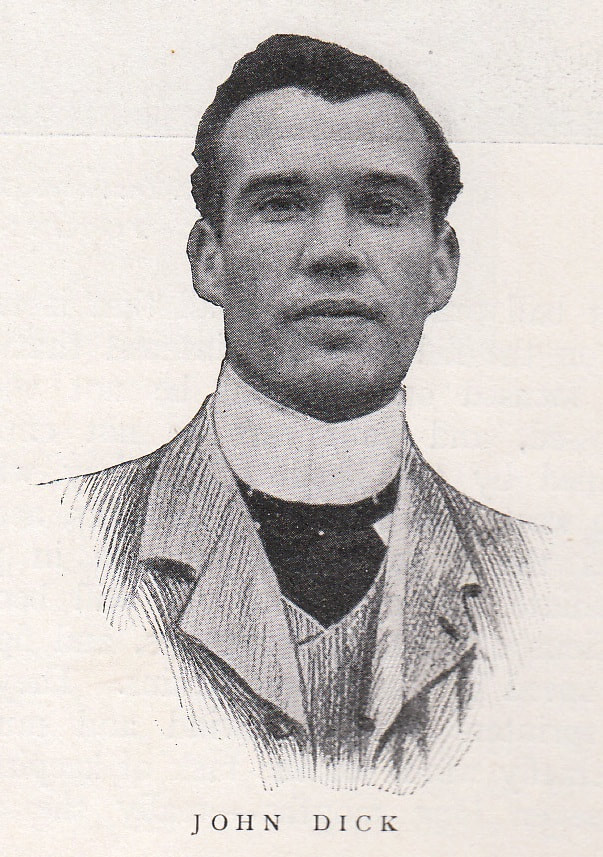
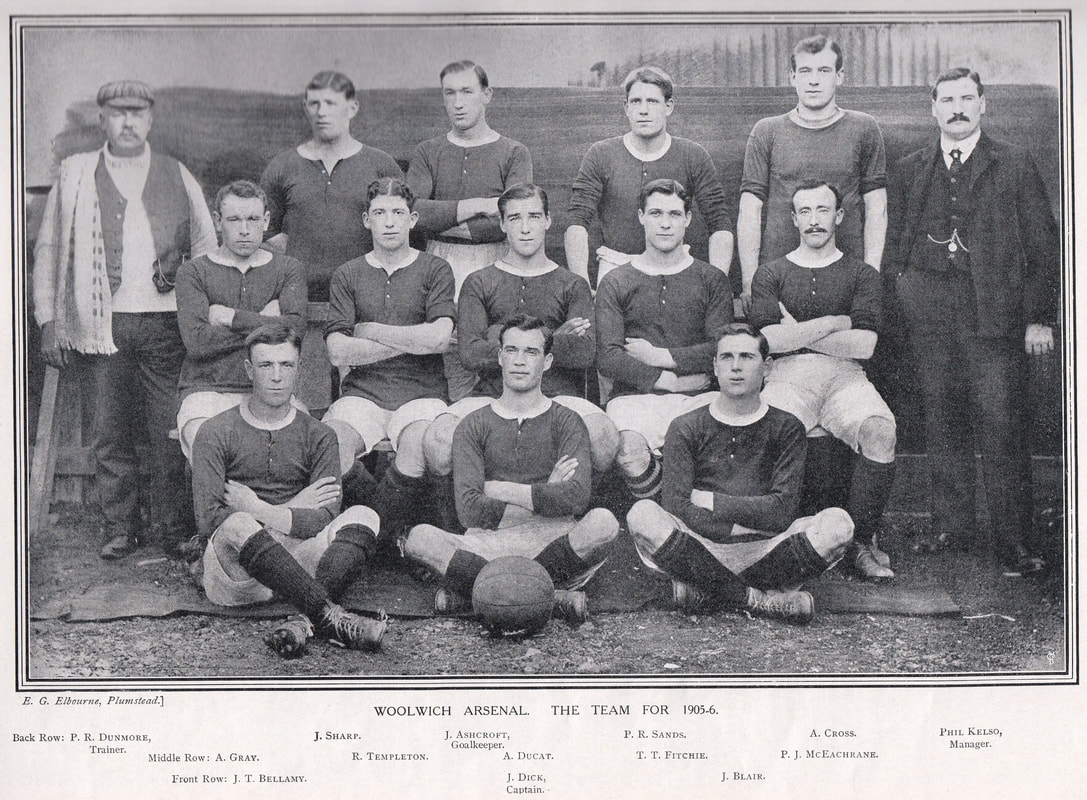
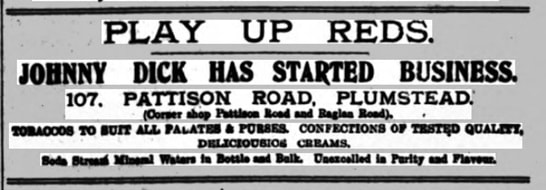

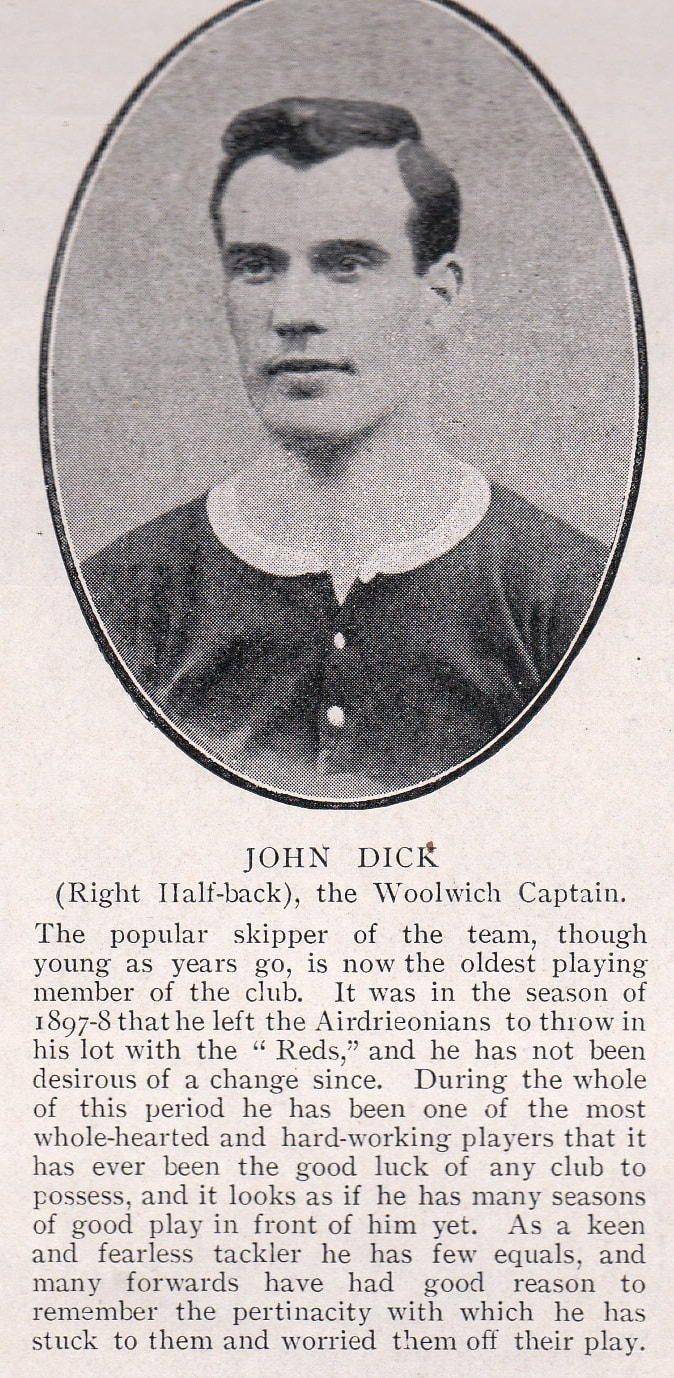
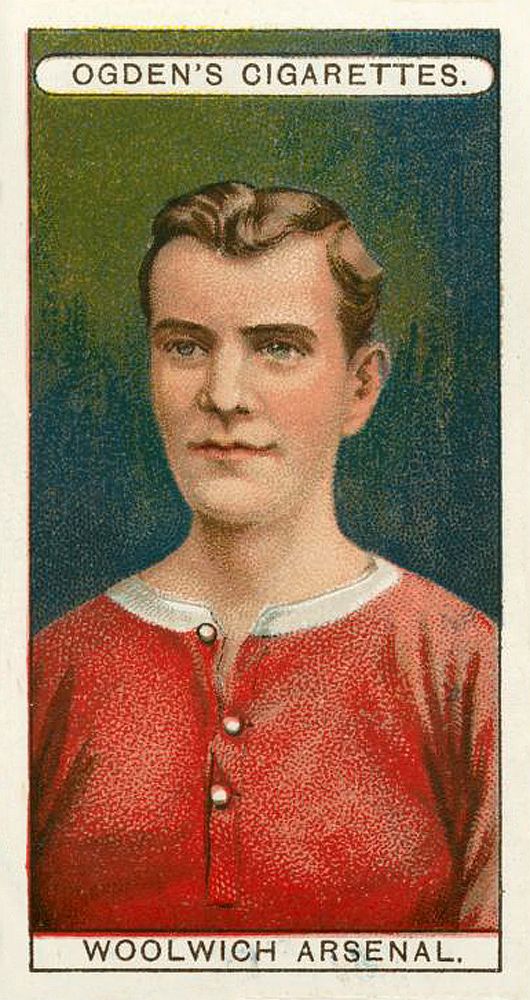
 RSS Feed
RSS Feed